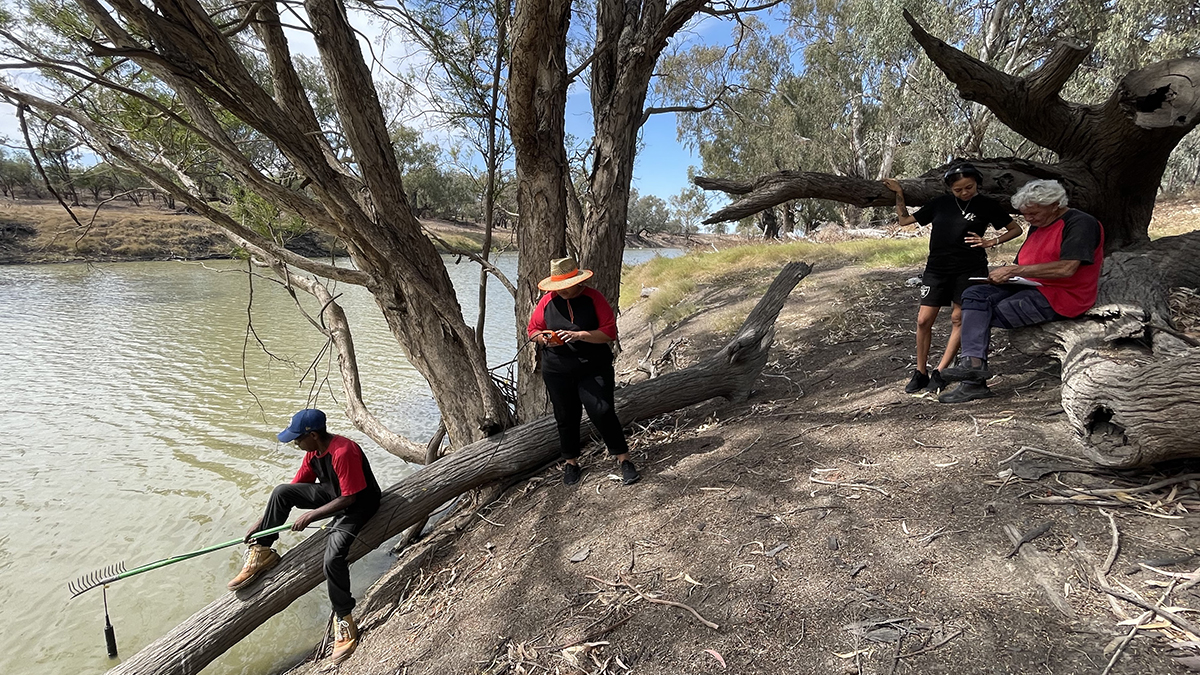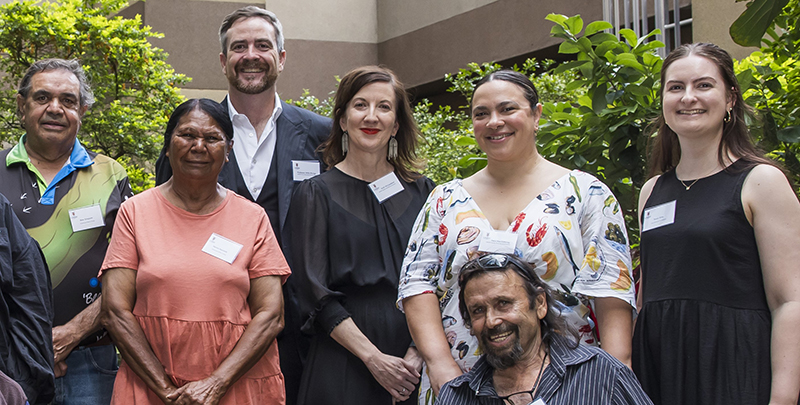
A new Evaluation and Learning Report documents evidence of outcomes of the Yuwaya Ngarra-li partnership between the Dharriwaa Elders Group and UNSW Sydney.
A new Evaluation and Learning report by Associate Professor Ruth McCausland, Dr Rebecca Reeve, Peta MacGillivray and May Miller-Dawkins provides evidence that the Yuwaya Ngarra-li partnership between the Dharriwaa Elders Group and UNSW contributed to more than 460 outcomes from 2020 to 2023. The report covers the last grant period from the Paul Ramsay Foundation, which has funded Yuwaya Ngarra-li since 2018 and recently refunded its work until June 2026.
Yuwaya Ngarra-li and the Paul Ramsay Foundation were finalists in the First Nations category in the Philanthropy Australia awards in April. Last year Inside UNSW featured articles on the purpose and goals of Yuwaya Ngarra-li and on efforts to improve food and water security in Walgett.

Progress and impact
Yuwaya Ngarra-li’s approach to understanding and documenting progress and impact across its various multidisciplinary projects has been enabled by an embedded Research and Evaluation team at UNSW. The outcomes counted were instances of actions taken by or changes for individuals, organisations and groups influenced by Yuwaya Ngarra-li and included:
- $233,000 worth of fine debt written or worked off with support from the Dealing with Fines program, a community-led response to the over-policing of Aboriginal people in Walgett
- safe drinking water available to everyone in Walgett filtered through a bespoke reverse osmosis system in the GALI water kiosk in the Dharriwaa Elders Group shopfront, the only safe source of public drinking water in town
- 32% reduction in Aboriginal young people in Walgett appearing in the Children’s Court with the development of a new holistic Baulaarr Bagay Warruwi Burranba-li-gu Two River Pathway to Change program that reduces criminalisation and improves positive non-justice pathways
- improved care for Country with a new Walgett ranger team looking after local rivers, testing water quality and tracking fish and bird life—the Ngarrangarra-li Walaaybaa (Look After Home Country) Rangers.
UNSW collaborators supported these initiatives through technical and strategic advice, data gathering and analysis, training and research in response to community priorities.
The report also documents what has been learnt about what it takes to see the outcomes achieved for Aboriginal people in Walgett as well as at a place-based and systems level:
- vision and shared values
- sustained and flexible philanthropic funding
- reflective practice
- working holistically across policy domains
- local Aboriginal staff
- addressing ongoing racism and remoteness
- University capability to work in a genuinely community-led way.
What has made a difference at the University end has been strong leadership support for the Elders’ vision for change, alignment with UNSW strategy, cultural inductions run by Aboriginal staff at UNSW, key academics committed to learning and working differently, and the UNSW Yuwaya Ngarra-li team being prepared to play multiple roles depending on community priorities, always being guided by the Elders’ vision and core principles.
Yuwaya Ngarra-li has also contributed to the securing of multidisciplinary research grants, publications in international journals, national awards for Masters projects, global case studies and University impact rankings.
Main image: The Ngarrangarra-li Walaaybaa ranger team measuring water quality in the Barwon River. Photo: Associate Professor Martin Andersen, UNSW Water Research Laboratory.
- Log in to post comments
